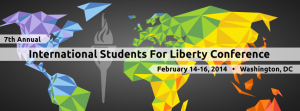 The morning after I saw “Catching Fire,” part two of the film series based on the Hunger Games novels, I was scheduled to give a lecture on the nature and functioning of the state. I had vast notes I had prepared over the previous six months for it.
The morning after I saw “Catching Fire,” part two of the film series based on the Hunger Games novels, I was scheduled to give a lecture on the nature and functioning of the state. I had vast notes I had prepared over the previous six months for it.
After seeing the movie, I was tempted just to toss them out; in fact, I nearly suggested that we all just leave the lecture hall and go to the movies. That’s because this one movie reveals more about the state than practically any book I could suggest.
It’s a great thing when popular culture becomes a teacher of truth, and I believe this is precisely what is happening in our time. Not every movie and not every show, but the biggest grossing of them are all centered on a theme. That theme is this: powerful people are not our friends but our enemies – so if we want to have a free and flourishing life, we are going to have to get busy and figure out how to make it happen.
The fictional government in the Hunger Games wants a static and unthinking population that is dedicated to compliance as a first principle. Everyone must stay in his or her assigned district (there are 12 remaining “districts” in Panem, the country that was once the United States); there is no social mobility; and the citizens are told to be grateful for this because, after all, there is no revolutionary threat anymore. To keep that possible, the people must be constantly punished for the last time anyone challenged the central authority. That punishment consists of an annual lottery that sends children to their death in fights that pit district against district in a highly televised gladiator event know as the Hunger Games.
In Catching Fire, we see a population beginning to discover that the real enemy is not the other districts; but the people at the top of the heap in the Capital – the capital city of Panem that belongs to no district, is disproportionately wealthy compared to the districts despite not producing anything themselves, is excluded from the Hunger Games lottery, and is where opulence prevails and whose people live without a care for the well-being of the rest of the population. The Capital sounds a lot like our non-fiction capital.
Here’s the thing: the command-and-control apparatus that was given life in the 20th century is in the process of falling apart. It can’t do anything right. As David Wiegel has pointed out in his blog on Slate.com, “Americans are rarely in love with our government, but rarely have we despised it like we do right now. A December 5-8 Gallup poll found that 72 percent of us consider ‘big government’ the greatest threat, the highest in 48 years.”
This is completely rational: the last several wars have yielded horrible body counts, but not improved lives; public services are nearly universally shabby compared with private ones; and people are starting to look at their taxes and scratch their heads, wondering what they are paying for.
The NSA spying scandal was a PR disaster for government. Did they really expect that the people would discover that all our phone calls, and emails, and even our browsing habits are being monitored and say in a collective voice “Oh thank you, big brother, for protecting us from bad things”? The nearly universal response was outrage, so much so that even the Obama administration has had to back away from responsibility.
Then there’s Obamacare. It was just last year that the now-president was bragging about having his name attached to it; after all, this was the “progressive” dream dating back many decades. The idea is that if we just let government run the system, we’ll get fabulous healthcare for next to nothing. The experts worked diligently to think through every contingency.
Finally the great day arrived where the dream could finally be translated into reality. What followed is routinely described as disaster. Fewer people are insured today than before the program was implemented. This was a mess made in D.C., but D.C. cannot and will not fix it. That’s the essence of the issue. Our problems have mostly been made by a bad idea that wasn’t ours to begin with, and now it is up to us to make the difference in our own lives and get out from under Panem’s – I mean Washington’s – control.
This is an idea that is indeed catching fire. The world of markets and the information they disseminate are breaking down the structures of power, and the great dream of Liberty.me is to push this trend further and provide a crowdsourced clearing house for chronicling and encouraging this great trend. We need this space and we are making it happen.





 The morning after I saw “Catching Fire,” part two of the film series based on the Hunger Games novels, I was scheduled to give a lecture on the nature and functioning of the state. I had vast notes I had prepared over the previous six months for it.
The morning after I saw “Catching Fire,” part two of the film series based on the Hunger Games novels, I was scheduled to give a lecture on the nature and functioning of the state. I had vast notes I had prepared over the previous six months for it.